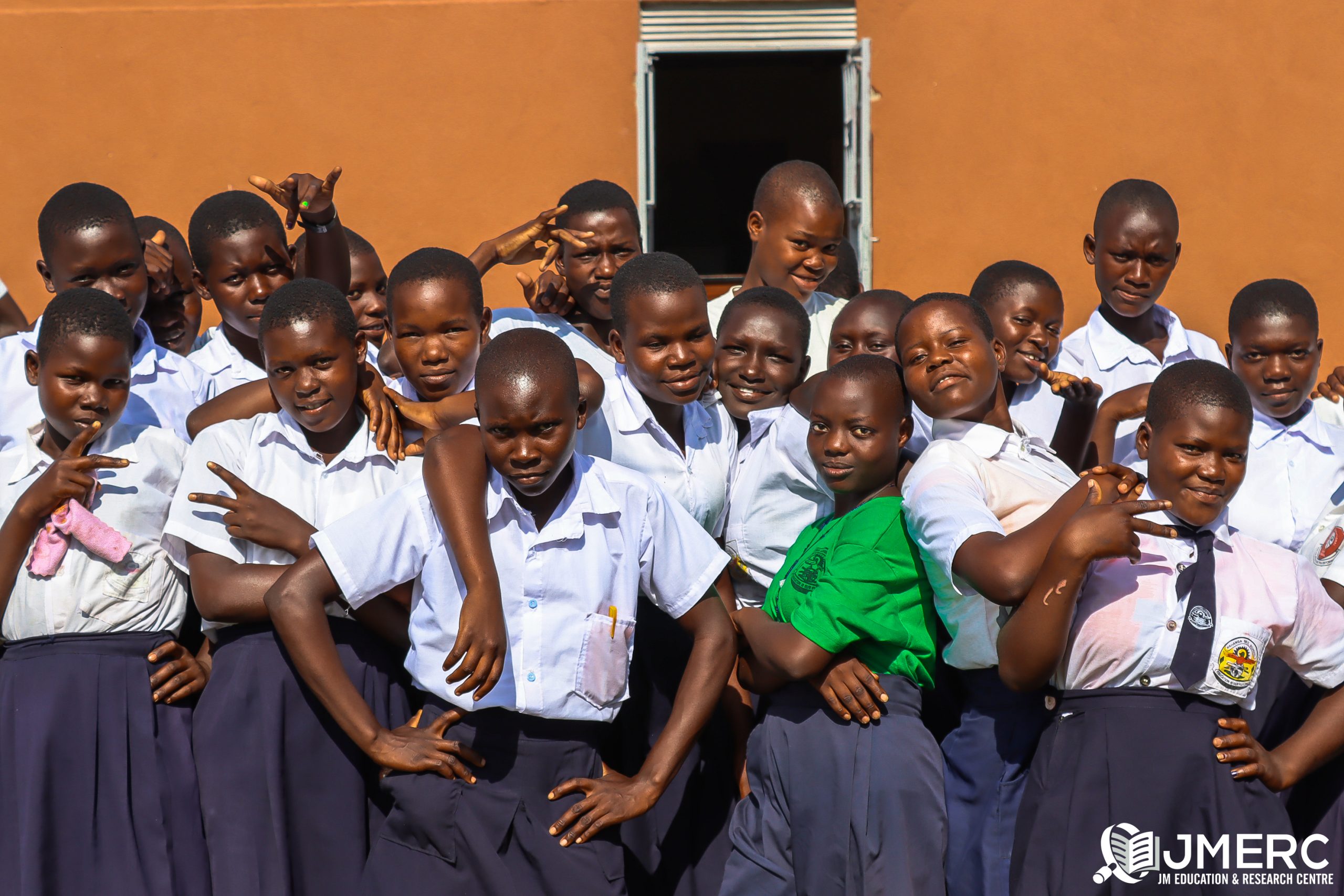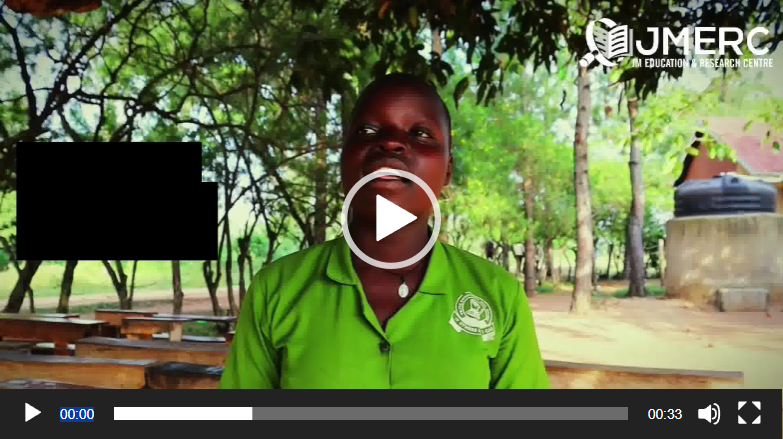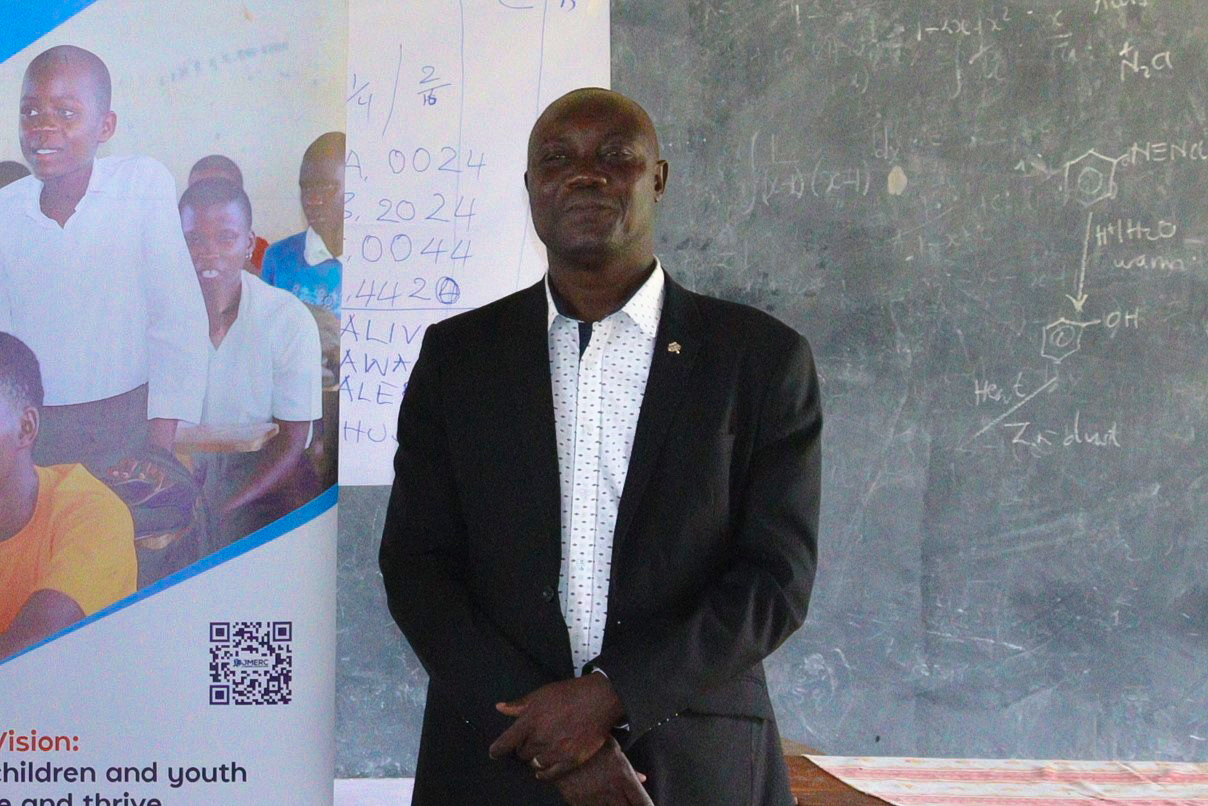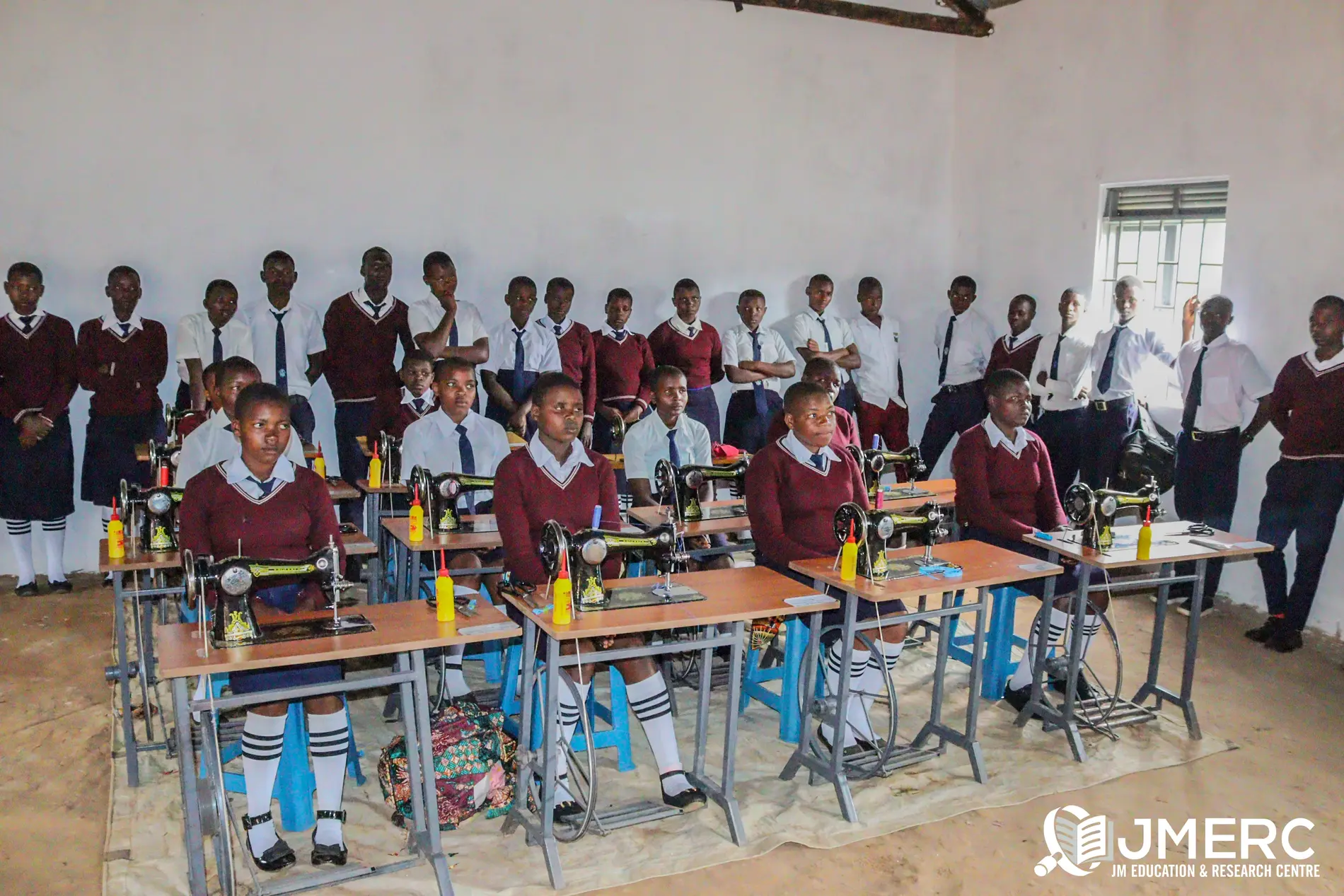menu
Through the SEL program, we have witnessed a significant reduction in class repetition and dropout rates across participating schools. By fostering emotional regulation, self-awareness, and resilience, students are better equipped to engage with their learning, resulting in increased classroom participation and academic performance. Moreover, the program has led to a noticeable decline in indiscipline cases, as students apply SEL skills to manage their emotions and interactions more effectively. These positive changes are a testament to the power of SEL in shaping resilient, engaged, and responsible learners.
“The training and resources provided by JMERC have tremendously improved our students' retention rate, especially among girls. We used to have almost 50% of girls dropping out of school before reaching senior four, but since the JMERC program started, we have not registered even 5% of the girls dropping out.” - Head Teacher

From our formative evaluation of the youth programme (now renamed: REASEL), we have seen significant improvements in emotional regulation (83.9% for girls, 87.2% for boys) and self-awareness (92% for boys, 89% for girls). These skills have contributed to improved school attendance and reduced dropout rates. With 96% of school leaders reporting positive shifts in behaviour, the program supports students in managing emotions and navigating academic challenges. Read Full Report Here


A 15-year-old girl at one of the partner schools in Western Uganda in Rukiga District faced unimaginable challenges after a false accusation and betrayal from her family. With the support of JMERC’s Youth Empowerment Programme, she found the strength to stand up for justice, defend the innocent, and overcome rejection. Her journey is a powerful testament to how empowerment and education can help adolescents build resilience in the face of adversity.
Read her full story and see how JMERC’s programs are transforming lives, one empowered adolescent at a time.
Frances’ Story: A Journey of Self-Awareness and Self-Management
In this powerful video, Frances, a student from one of our partner schools in Tororo District, shares how the SEL training has transformed her life. Through developing self-awareness and self-management skills, Frances has gained the confidence and resilience needed to overcome challenges and set her sights on greater heights. Her story is a testament to the transformative power of education and personal growth. Take a few minutes to watch the video of Frances’ inspiring story

Sexual and Reproductive Health (SRH)
The SRH program has had a transformative impact on students, particularly in building self-esteem and empathy. 95% of girls reported a significant boost in their intrinsic self-worth, while 90% of boys demonstrated enhanced self-efficacy and empathy, which are crucial for healthier relationships and emotional growth. Additionally, 53% of students showed improvements in cross-gender communication, which has fostered greater mutual respect and understanding between boys and girls. This shift is vital in breaking down gender stereotypes and promoting healthier dynamics. The program has also made a remarkable impact on sanitation and hygiene awareness, with 91.4% of students recognizing improvements, leading to better personal hygiene practices and a more health-conscious school environment. Take a few minutes to read the Summary Report
Our Menstrual Literacy program has made remarkable strides in empowering female students with essential knowledge about menstruation. 91% of participants now have basic knowledge about menstrual health, while 91% feel more open discussing menstrual health, breaking long-standing taboos. Additionally, 90% of students report improved access to menstrual health information, and 87% are now better equipped to manage menstrual health effectively. These outcomes reflect the program’s success in fostering a well-informed, confident, and empowered generation, ready to take charge of their health and well-being.
Summary Report
Celebrating Transformative Leadership: The Journey of Mr. Bayeke Peter
After our two years’ journey of program implementation at Petta Community Senior Secondary School, Mr. Bayeke Peter’s leadership has had a transformative impact, particularly in empowering girls and reducing dropout rates. His commitment to girls’ education has led to zero dropouts among female students, a historic achievement for the school. Through his efforts, students have gained essential skills and confidence to excel both academically and personally.
Mr. Bayeke’s leadership, which fosters a supportive school environment, strengthens community engagement, and inspires excellence, continues to shape the future of his students.
Read more about his transformative journey in our blog.

Through the HOYEE program, we have not only provided comprehensive training in employability and entrepreneurship to youth in schools, but we have also taken tangible steps to empower communities directly. By equipping two community schools with vital tools and equipment such as sewing machines and computers, we are giving young people the resources they need to turn their skills into sustainable livelihoods. This holistic approach ensures that youth are not just learning but are actively preparing for future careers and entrepreneurial ventures, breaking the cycle of poverty and creating lasting economic opportunities.


Gender Transformative Education Initiative (GTEI)
As part of our ongoing efforts to promote gender equality in education, we facilitated two impactful dialogues with key stakeholders, including the Ministry of Education and Sports, teachers, civil society organizations, representatives of ASHU (the Association of Headteachers in Uganda), and academic experts. These dialogues aimed to address critical issues surrounding gender equity in education. Additionally, a consultative study was conducted, and the forthcoming report will provide valuable insights into the challenges and opportunities in achieving gender-transformative education.
In collaboration with NTV Uganda, we hosted a public dialogue where members of the public debated the national Gender Policy and its implications for equity in education. The discussion highlighted concerning gender disparities in Uganda’s education system: Primary school survival rates are 32.5% for girls and 33.1% for boys, with many not reaching Primary 7. Secondary enrolment rates stand at 46.9% for girls and 51.1% for boys, showing a clear gender gap. Completion rates at Senior 4 are 34% for girls and 45% for boys, further emphasizing the need for gender-responsive policies.
SOCIAL - EMOTIONAL LEARNING WITH LITERACY THROUGH PLAY
At JM Education and Research Centre, we believe that, “Educating the mind without educating the heart is no education at all”, a quote by Aristotle. This drives our intention to support and nurture children’s holistic growth and development through a combination of Literacy and Life-skills development. Furthermore, we believe that young learners learn better through a kinaesthetic style, being the genesis of employing a play-based approach in our intervention.
As one of the implementation modalities, we managed to train forty-four (44) educators in April, 2025. These included teachers of Literacy and English Language for Lower Primary classes of the pilot schools, school leaders and the District Education Team, which was led by Ms. Nabwire Jane, the District Inspector of Schools. The District Education T0eam are very supportive to our intervention and this has been witnessed in all the implementation activities conducted so far.
Also, the training was honoured by Dr. Sarah Ruto, a representative from Echidna Giving, who advised teachers to so much embrace the Play-based approach of teaching and the hands-on teaching methods so as to make the teaching and learning of Literacy achievable.
Considering the zeal the implementers have started with, we are very hopeful that the intervention will yield tangible results by the end of the pilot phase, which will pave way for our programme expansion to other districts in the country, in 2026.